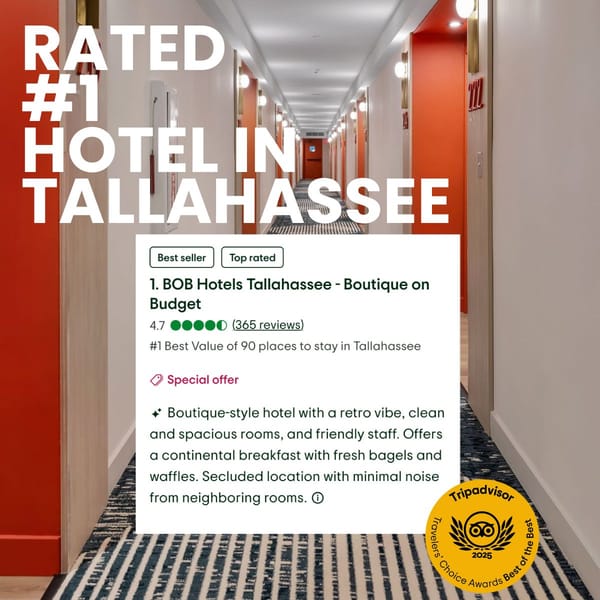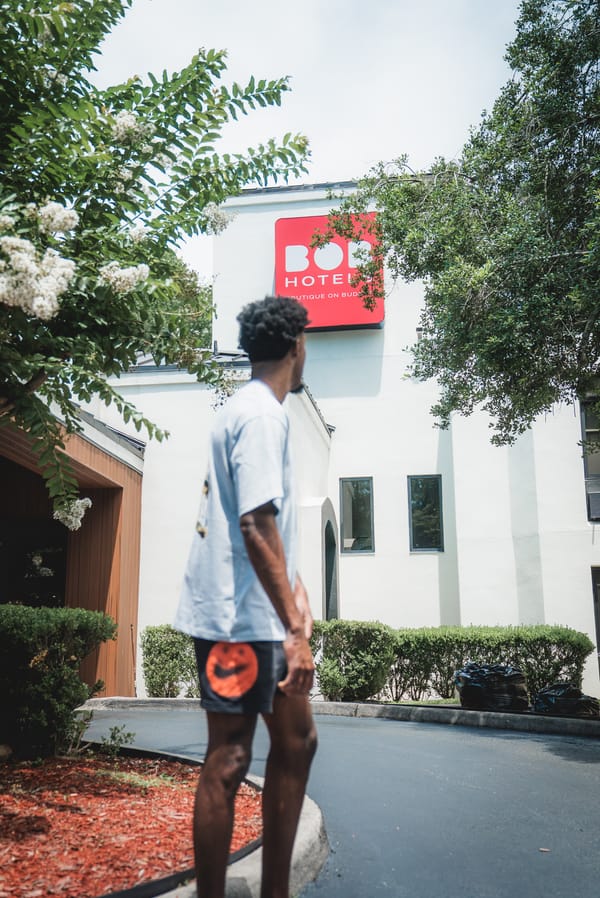Last-Minute Travel vs. Early Booking: Pros and Cons
Explore the pros and cons of early booking versus last-minute travel to determine the best approach for your next trip.

Should you book your trip early or wait for last-minute deals? Here's a quick breakdown to help you decide:
-
Early Booking:
- Save Money: Lock in promotional fares and discounts.
- Better Choices: More options for flights, rooms, and activities.
- Less Stress: Plan and prepare with plenty of time.
- Drawbacks: Less flexibility, potential cancellation fees, and higher upfront costs.
-
Last-Minute Travel:
- Deep Discounts: Snag deals on unsold inventory close to travel dates.
- Spontaneity: Adapt to weather, pricing, or unexpected opportunities.
- Drawbacks: Fewer options, higher costs during peak times, and more uncertainty.
Quick Comparison
| Factor | Early Booking | Last-Minute Travel |
|---|---|---|
| Cost | Lower prices, predictable, but higher deposits | Discounts possible, but risky during peaks |
| Availability | Full range of choices | Limited options for flights and lodging |
| Flexibility | Requires commitment | Great for spontaneous plans |
| Stress Level | Lower stress, more preparation time | Higher stress, quick decisions needed |
Key Tip: Early booking is best for peak seasons and group trips, while last-minute travel works well during off-peak times or for flexible travelers. Decide based on your priorities, budget, and travel style.
Early Booking vs Last Minute Discounts
Benefits of Booking Early
Booking ahead comes with several perks, from saving money to reducing stress.
Save Money
When you book early, you can often snag promotional fares and discounts, which helps keep costs down. Many providers also offer flexible payment options, like paying a deposit upfront and settling the balance later [1]. For instance, securing a reservation at BOB Hotels Tallahassee early means locking in modern, budget-friendly boutique accommodations at a lower price.
Better Choices
Booking early gives you first pick of room types, prime seats on flights, and spots for popular activities - especially crucial during busy travel seasons [3]. This is a big plus when demand is high, and options are limited.
Stress-Free Planning
Getting your travel plans sorted in advance gives you plenty of time to research your destination, create a detailed itinerary, and reserve spots for must-do activities [4]. With the essentials taken care of, you can focus on the fun parts of your trip instead of scrambling to finalize the basics [1].
While booking early has its upsides, it might not be ideal for those who need more flexibility.
Drawbacks of Booking Early
Less Flexibility
Booking early often comes with strict cancellation policies, which can lead to penalties or losing your deposit if plans change. According to a 2022 NerdWallet study, travelers who modify their reservations frequently face hefty fees [5]. Life is unpredictable - work commitments or emergencies can make these rigid policies a real hassle.
Higher Initial Costs
Although early bookings are often promoted as cost-saving, they don't always guarantee the lowest price. Sometimes, last-minute deals can be cheaper. Additionally, many travel providers require full payment or a significant deposit upfront, which can tie up money you'd rather use elsewhere. For example, vacation packages booked months in advance often demand a large deposit. The same NerdWallet study found that hotel rooms booked four months ahead can cost 13% more than those reserved just 15 days before the stay [5].
Here’s a quick comparison of how different booking types stack up in terms of flexibility and payment:
| Booking Type | Cancellation Policy | Payment Requirements |
|---|---|---|
| Flexible Early Booking | Free cancellation up to 24-48 hours before | Small deposit required |
| Standard Early Booking | Non-refundable after booking | Full payment upfront |
| Last-Minute Booking | Limited or no cancellation options | Immediate full payment |
These factors show why some travelers prefer the spontaneity of last-minute bookings despite the risks. Early booking has its perks, but these drawbacks are worth considering when planning your trip.
Benefits of Last-Minute Travel
Unlike early booking, which focuses on planning and predictability, last-minute travel appeals to those who enjoy spontaneity and the thrill of the unexpected.
Discounts on Unsold Inventory
Traveling at the last minute often means snagging deals on leftover inventory. Discounts usually pop up 48-72 hours before check-in or departure [2][6]. Hotels, airlines, and other providers lower prices to fill empty spots, which can mean premium experiences at a fraction of the usual cost.
| Booking Window | Typical Discount Types | Best For |
|---|---|---|
| 24-48 hours | Flash sales, last-minute room deals | Solo travelers, couples |
| 3-7 days | Package deals, flight + hotel bundles | Small groups |
| 1-2 weeks | Tour packages, cruise cabins | Families, group travelers |
Flexibility and Spontaneity
Beyond savings, last-minute travel offers freedom from rigid plans [2][4]. It lets you:
- Jump on unexpected opportunities
- Pick destinations based on current weather
- Avoid the crowds during peak travel times
- Make choices based on up-to-the-minute prices and availability
This approach lets travelers adapt to real-time conditions, like weather or pricing, creating a more relaxed and enjoyable experience. For example, boutique options like BOB Hotels Tallahassee often provide competitive last-minute rates, combining modern comforts with great locations. This makes impromptu trips both affordable and enjoyable.
That said, successful last-minute travel requires flexibility and backup plans [2][4]. It's especially effective during shoulder seasons when pricing and availability align perfectly. While it offers savings and adventure, there are challenges to consider - which we’ll dive into next.
Drawbacks of Last-Minute Travel
Limited Choices
When you book trips at the last minute, your options for flights, accommodations, and activities can shrink significantly. This might mean inconvenient flight routes, only middle seats available, or missing out on popular attractions because they’re fully booked. For example, boutique hotels like BOB Hotels Tallahassee, known for modern and budget-friendly stays, may no longer have vacancies. Here's a quick breakdown of common limitations:
| Category | Common Limitations | Travel Impact |
|---|---|---|
| Flights | Fewer routes, only middle seats | Longer travel times, less comfort |
| Accommodations | Limited room types, less ideal locations | Higher costs, reduced convenience |
| Activities | Sold-out tours, full bookings | Missed experiences, adjusted plans |
Higher Costs During Peak Times
Last-minute travel can hit your wallet hard, especially during holidays, major events, or at sought-after destinations. Prices can surge by as much as 50% due to limited availability and dynamic pricing systems [1][2]. This often forces travelers to either stretch their budget or compromise on their ideal plans - especially if specific dates or locations aren’t flexible [2][4].
"Travel experts recommend flexibility, thorough research, and planning ahead to minimize the risks associated with last-minute travel. They also suggest considering alternative destinations or travel dates to avoid peak season challenges" [2][4].
While the spontaneity of last-minute travel can be tempting, these challenges underline the need for a balance between impulsiveness and preparation.
Comparison: Early Booking vs. Last-Minute Travel
Here's a breakdown of how early booking compares to last-minute travel across the key factors that matter to most travelers. This can help you decide which approach fits your plans best.
| Factor | Early Booking | Last-Minute Travel |
|---|---|---|
| Cost Considerations | • Lower base prices • Predictable budgeting • Higher initial deposit |
• Discounts on unsold rooms or seats • Risk of surge pricing during peak times • Unpredictable costs |
| Availability | • Full range of room types • Better flight options • More activity choices |
• Limited room selections • Restricted flight routes • Fewer activity options |
| Planning Flexibility | • Time for trip preparation • Ideal for group travel • Requires commitment |
• Perfect for spontaneous trips • Flexible destinations • Easy to adjust plans |
| Stress Level | • Peace of mind with secured bookings • Time to research • Lower stress |
• Uncertainty can increase stress • Quick decisions required • Limited research time |
Early booking gives you more stability, better options, and time to plan, but it requires a firm commitment. On the other hand, last-minute travel is great for flexibility and spontaneity but comes with risks like higher stress and fewer choices. For example, boutique hotels like BOB Hotels Tallahassee often offer better rates and availability to early bookers, though last-minute discounts can occasionally pop up as well [1][6].
During shoulder seasons, both strategies can work well. However, if you're traveling during peak periods, early booking is usually the safer choice due to high demand and limited availability [2][4].
Your decision ultimately depends on your priorities. If you value predictability and specific preferences, early booking is the way to go. But if you're looking for flexibility and the thrill of last-minute deals, spontaneous travel might be a better fit [1][4].
Next, let’s dive into practical tips to help you decide which approach aligns best with your travel plans.
Tips for Choosing the Best Booking Option
Deciding between booking early or waiting until the last minute involves weighing a few key factors. Here's how to make the best choice for your trip:
Compare Across Platforms
Take advantage of tools and resources to find the best deals. Here's what you can do:
- Use price comparison tools to monitor rate changes.
- Set up price alerts to track fluctuations.
- Check hotel websites or call directly for exclusive or unpublished rates.
These steps can help you find better deals, but remember, when you book can also make a big difference.
Travel During Shoulder Seasons
Shoulder seasons - those times between peak and off-peak travel periods - can give you the best of both worlds. They often come with moderate discounts, better availability, and pleasant weather, making them ideal for both early and last-minute bookings [1][4].
| Season Type | Early Booking Perks | Last-Minute Perks |
|---|---|---|
| Shoulder | • Moderate discounts • Good availability • Comfortable weather |
• Deals are more likely • Less competition • More flexible options |
| Peak | • Best rates • Guaranteed availability |
• Fewer choices • Higher prices |
| Off-Peak | • Lowest rates • Maximum options |
• Deep discounts • Plenty of rooms |
Example: Budget-Friendly Boutique Hotel
Take BOB Hotels Tallahassee as an example. They show how early booking can lock in lower rates and secure rooms during busy times, while last-minute options might save you money during quieter periods [2][6].
- Early booking rates start at $70 during the low season.
- Prices rise sharply during events like football season or graduations.
- Last-minute deals could still be available during slower times.
This example shows how timing your booking can help you save money and ensure a smooth trip.
Conclusion
We've covered practical tips to help you decide between early booking and last-minute travel. Here's what it boils down to:
Early booking works best if you value reliability and like to plan ahead - especially for peak seasons, group trips, or special events. On the other hand, last-minute travel is great for those who enjoy spontaneity, particularly during off-peak times or shoulder seasons.
The choice ultimately comes down to your travel style. Think about how comfortable you are with uncertainty, your budget, and how flexible your schedule is. Mixing both approaches can often be the smartest move - secure the must-haves in advance, but stay open to unexpected opportunities [1][4].
With some research and a clear understanding of your needs, you can strike the right balance. Whether you plan months ahead or embrace the thrill of last-minute deals, thoughtful preparation can make all the difference [6].
FAQs
Do hotel prices drop closer to the stay date?
Sometimes, booking closer to your stay date can save you money, but timing is everything. A 2022 NerdWallet study found that travelers saved an average of 13% when booking 15 days before their stay compared to booking four months in advance [2]. That said, this approach works better during slower travel periods. For high-demand seasons or special events, prices usually go up as the stay date gets closer.
| Booking Timeline | Potential Savings | Key Considerations |
|---|---|---|
| 15 Days Before | Up to 13% savings | Fewer room options available |
| 4 Months Before | Standard rates | Better selection and availability |
| Peak Season | Rare discounts | Book early to avoid price spikes |
"Last-minute bookings can be risky and may not always offer the best deals. It's essential for travelers to weigh the pros and cons and consider their personal preferences and priorities before making a decision." [2][4]
Whether last-minute bookings work for you depends on factors like the time of year, local events, and overall demand. For busy travel seasons or must-attend events, booking early is the safer bet. But during quieter times, holding off for last-minute deals might help you save quite a bit.
Knowing these patterns can help you decide the best approach for your trip.




